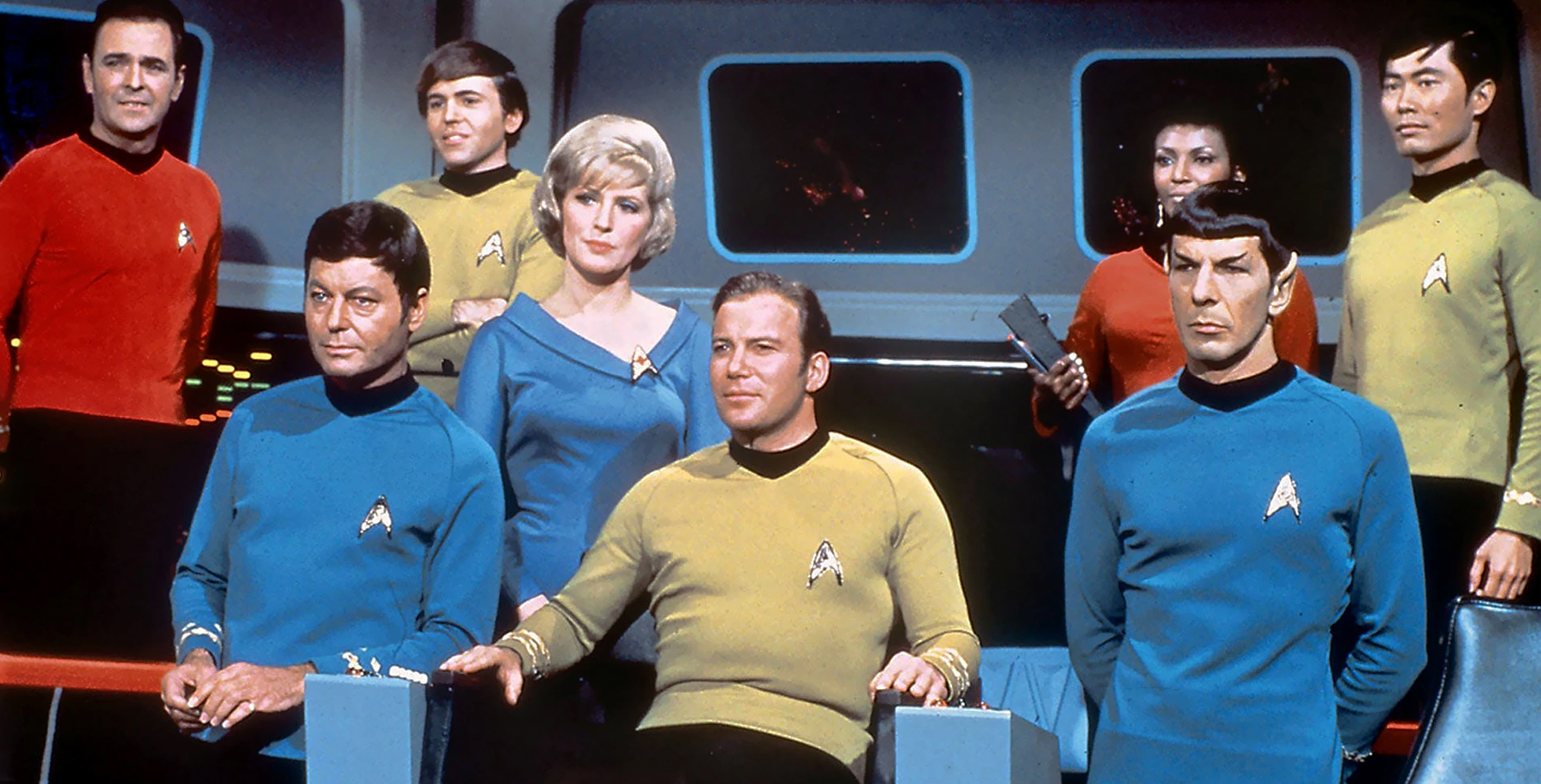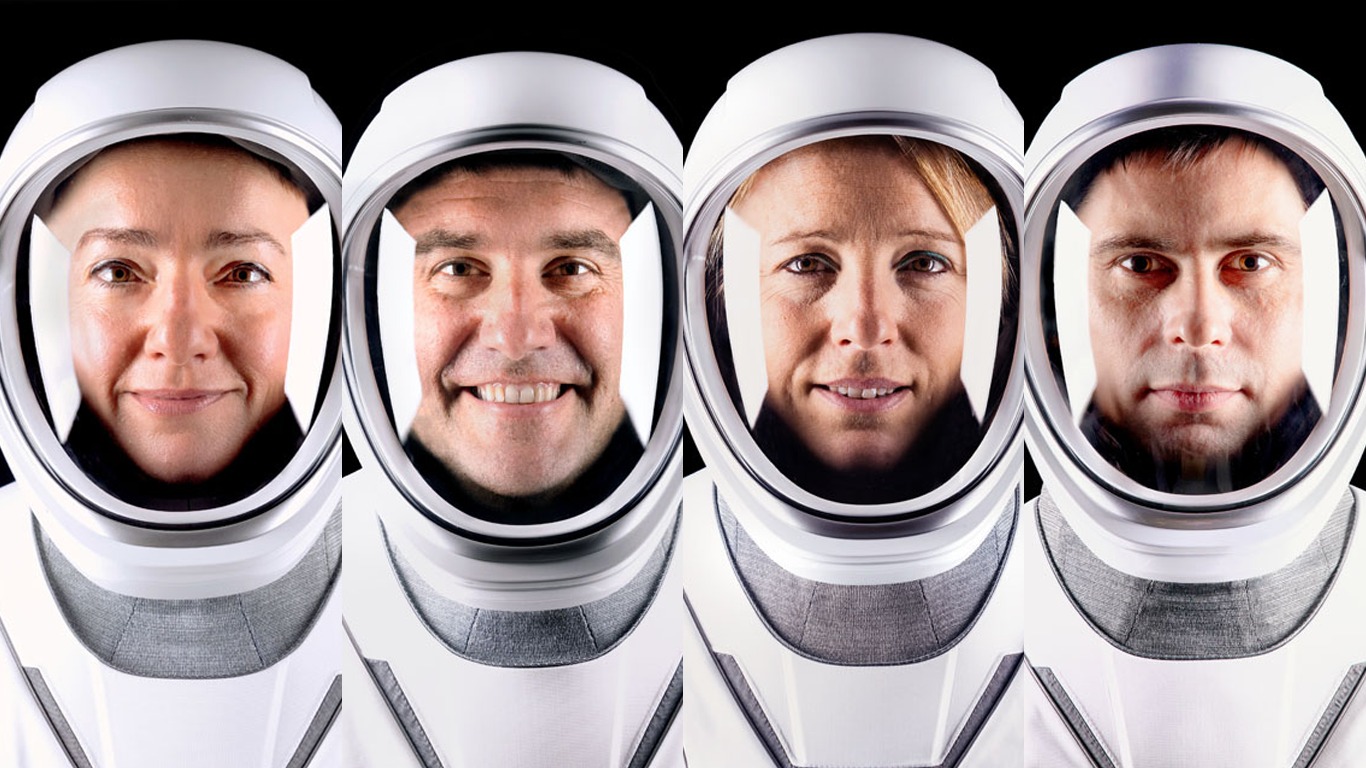What 'Star Trek' has taught us about diversity
On September 8, 1966, a new kind of show premiered on NBC. Described by creator Gene Roddenberry as a Western set in space, "Star Trek" took viewers to the 23rd century on a five-year mission to explore space aboard a ship called the Enterprise.
But, what was immediately remarkable about this television show wasn’t its setting or tone: It was its cast.
The iconic crew of the original Enterprise is now a staple in television history. But it’s worth remembering how rare it was, in that era, to see any characters of color on television that weren’t just negative stereotypes.
George Takei, a Japanese-American actor, played Lieutenant Hikaru Sulu while the lovely Nichelle Nichols, an African-American actress, portrayed Lieutenant Uhura. Seeing these two characters on screen, as a part of this utopic future changed countless lives for the better. Kids took their inspiration from a future in which all would be included. For the first time, kids of color could see themselves on screen in positive ways, and the repercussions have lasted generations.
Related: 7 Lessons 'Star Trek' Taught Us About Life, Leadership and Diversity
Roddenberry believed in an idea he termed as IDIC, or "infinite diversity in infinite combinations." The fundamental belief behind IDIC is a celebration of the diversity the universe has to offer. While it’s since been labeled a marketing ploy intended to sell merchandise (Roddenberry ascribed this philosophy to the Vulcans on screen), that doesn’t mean IDIC hasn’t had a lasting impact on the franchise. As Roddenberry’s son, Gene "Rod" Roddenberry, Jr., said in "The Fifty Year Mission," an oral history of "Star Trek" by Mark Altman and Edward Gross, IDIC is "one of the backbones of the original series” and focuses on the idea of “universal acceptance."
But what does "universal acceptance" mean? That’s a difficult question and one that many still struggle to answer today. It’s worth looking at what Trek has taught us, both on and off-screen, to help us grapple with what being inclusive really means as often, societal realities fall short of the ideal. But that doesn’t mean we shouldn’t stop trying to do and be better.
Breaking space news, the latest updates on rocket launches, skywatching events and more!
While "Star Trek" has almost always been ahead of its time in terms of diversity portrayal on-screen (with the notable exception of "Enterprise," which regressed somewhat in terms of representation), the different Trek series do reflect the time in which they were produced.
Revisiting Trek
"The Original Series," for example, may have been lauded for its inclusivity, but there was only one woman on the bridge. Takei has become a cultural icon, but it’s easy to forget how little character development he was given on screen, to the point where he was omitted from some episodes altogether.
"The Next Generation," on the other hand, had just two women in its regular cast throughout the bulk of the series, and just one character of color in LeVar Burton’s Geordi La Forge. (However, there were two regular actors of color on the show — Michael Dorn, a Black actor, played Worf in full makeup every episode).
"Deep Space Nine," features one of the most meaningful father/son relationships in television history between Benjamin Sisko and his son Jake, played respectively by Black actors Avery Brooks and Cirroc Lofton, but maintained the status quo of an overwhelmingly male cast. Additionally, the Ferengi were rightly criticized as being antisemitic Jewish stereotypes.
"Voyager," increased the number of regular female cast members to three and expanded racial representation, but it’s hard to forget the catsuits that Jeri Ryan was forced to wear as Seven of Nine in an effort to "sex up" the series.
That’s another important lesson that "Star Trek" teaches us: When it comes to inclusiveness, execution matters just as much as intention. It’s not enough to add in women and characters of color as set dressing. They need to be included in the show in a meaningful, purposeful way, something that the franchise has learned over the years.
Related: How Borgs, Vulcans and doctors showed diversity on 'Star Trek: Voyager'
"Discovery" premiered on CBS All Access to much fanfare in 2017, after "Trek" took a 12-year break from the small screen. The series lead is Sonequa Martin Green, a Black woman who plays Michael Burnham; the show also features its first gay couple in Paul Stamets and Hugh Culber, played by Anthony Rapp and Wilson Cruz, respectively. While there is always room to do better, the show embodies the diversity that the franchise has always espoused. From female friendships to the diverse secondary cast, the LBTQIA+ representation and the women of color in positions of power: When it comes to representation, this show is an endless delight.
However, "Discovery" was uneven in its first season: "Creative differences" led to choppy storytelling, and the congenial, diverse environment onscreen hid a toxic, abusive writer’s room. As the show course-corrected in its second season and fans eagerly await the third, this behind-the-scenes drama reminds us that toxic environments can exist anywhere, even in places that proclaim to value diversity.
Indeed, the backlash to "Discovery" in certain segments of the fandom underlined this lesson: On the surface, legions of Trek fans proclaim to love the diversity the franchise has historically presented. However, a subset of "fans" is in open revolt at the future "Discovery" shows us.
"Star Trek" has almost always catered to a straight white male demographic (with the exception of "Voyager," which was led by female captain Kathryn Janeway, played by Kate Mulgrew). By placing women, gay men and characters of color at the front and center, Discovery’s message is that those straight white male fans aren’t necessarily centered anymore. It’s not that they aren’t important — just that other fans matter too. And many aren’t taking to that revelation kindly.
That’s not to say that every criticism of "Discovery" is rooted in anti-inclusiveness — it’s impossible for one show to cater to everyone’s tastes, especially in a fandom as vast and varied as this. But Alex Kurtzman, who holds the future of the "Star Trek" franchise in his hands, has made it clear that he’s continuing to learn these lessons of inclusivity as he leads, taking Trek’s impactful but imperfect history into account every step of the way.
It’s not perfect, and it likely never will be. But that’s okay. The most important thing that "Star Trek" has taught us about diversity is that we will go in with the best of intentions, and often we’ll mess it up. But with every next step, we’ll continue to try and do better.
Follow us on Twitter @Spacedotcom and on Facebook.

